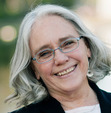Edith Maxwell's Blog, page 64
August 29, 2022
Guest Lois Winston plus #giveaway
Edith/Maddie here, winding down a full August with our penultimate guest for the month.
Lois Winston and I have been fellow members of the Guppies for a long time, and I’ve been her guest more than once over on her blog, Killer Crafts and Crafty Killers. I’m happy to return the favor today. Her new book, Guilty as Framed, the 11th in the series, will be out next week and she’s giving away an ARC to one lucky commenter!

When an elderly man shows up at the home of reluctant amateur sleuth Anastasia Pollack, she’s drawn into the unsolved mystery of the greatest art heist in history.
Boston mob boss Cormac Murphy has recently been released from prison. He doesn’t believe Anastasia’s assertion that the man he’s looking for doesn’t live at her address and attempts to muscle his way into her home. His efforts are thwarted by Anastasia’s fiancé Zack Barnes. A week later, a stolen SUV containing a dead body appears in Anastasia’s driveway. Anastasia believes Murphy is sending her a message. It’s only the first in a series of alarming incidents, including a mugging, a break-in, another murder, and the discovery of a cache of jewelry and an etching from the largest museum burglary in history.
But will Anastasia solve the mystery behind these shocking events before she falls victim to a couple of desperate thugs who will stop at nothing to get what they want?
Journaling Through Fiction
For my birthday one year, my best friend gave me a diary. Every night before going to bed, I’d jot down my most private thoughts, many of which centered on life in an extremely dysfunctional family. Writing became my catharsis.
One day I discovered my mother had been reading my diary. In hindsight, her invasion of my privacy should have come as no shock. Knowing how I’d set her off if I confronted her, I continued to write, but out of spite, filled the pages with pure fiction. Of course, being fifteen years old, I didn’t exactly think things through. Suffice to say, the episode ended my brief stint as a modern-day female Samuel Pepys.
This adolescent experience is probably why I’ve never kept a journal as an adult, which makes me somewhat of an outlier in the world of writers. However, it hasn’t prevented me from capturing my thoughts and feelings on paper. As authors, we’re told to “write what you know.” That’s why my Anastasia Pollack Crafting Mystery Series features a protagonist who’s the crafts editor at a woman’s magazine. I spent many years as a designer and editor in the consumer crafts industry, working for magazines, book publishers, and manufacturers.
In all my books, no matter the genre, my stories incorporate family—some good, some far from good. These make their way into both my characters and some of the situations they create or find themselves in. Many are based on interactions and observations from my own life.
However, most of my characters are an amalgam of various people I’ve known, incorporating traits, experiences, and outlooks. However, Anastasia’s communist mother-in-law Lucille Pollack, is based more than loosely on my own communist mother-in-law. Lucille is the driving force for conflict within the walls of Anastasia’s home, just as my own mother-in-law was a driving force for conflict in our family. The big difference? Because I write humorous cozy mysteries, Lucille and her fellow octogenarian revolutionaries are also a source of comic relief amidst the murder and mayhem I create for Anastasia.
Lucille is the character many of my readers love to hate, even as they chuckle at her over-the-top antics. But she’s also a woman consumed by her own self-righteousness, which often takes precedence over common sense. There are now eleven books in the series. Lucille plays a major role in some, a minor role in others, but always in ways that impact both the plot and/or the other characters. In Guilty as Framed, the latest book in the series (currently available for pre-order) Lucille’s brief appearances have a huge impact on her and those around her.

Writing as catharsis…it doesn’t matter how you do it. Whether as journaling or in fiction, it can provide the same emotional relief.
Readers: do you journal? If you’re a writer, do you incorporate the people who have impacted your life in one way or another into the characters you create in your novels? I’ll send an ARC of Guilty as Framed (US only) to one commenter.
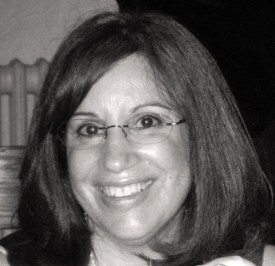
USA Today and Amazon bestselling and award-winning author Lois Winston writes mystery, romance, romantic suspense, chick lit, women’s fiction, children’s chapter books, and nonfiction under her own name and her Emma Carlyle pen name. Kirkus Reviews dubbed her critically acclaimed Anastasia Pollack Crafting Mystery series, “North Jersey’s more mature answer to Stephanie Plum.” In addition, Lois is a former literary agent and an award-winning craft and needlework designer who often draws much of her source material for both her characters and plots from her experiences in the crafts industry. Learn more about Lois and her books at her website www.loiswinston.com where you can also sign up for her newsletter and follow her on various social media sites.
August 25, 2022
Guest Lucy Burdette, plus #giveaway
Edith/Maddie writing from north of Boston where I’m blissfully awash in ripe tomatoes and basil.
I’m so happy to welcome Friend of the Wickeds Lucy Burdette back to the blog. A Dish to Die For, her newest Key West Food Critic mystery, is out. Like every book in this series, it’s a fabulous read!

Why I Love Real Places and People in My Mystery Series
A couple of weeks ago I started thinking about the difference between a writer who writes a book completely out of her imagination, and one (like me) who uses real places, real food, and sometimes even real people. Am I just a lazy writer who prefers stealing stories rather than making them up from scratch? It seems so much more difficult to develop an entire series and a setting using only what I might find in my mind.
When I was writing the first book in the Key West food critic series, An Appetite for Murder, a writing friend in Key West suggested that it would be better to use imaginary places. Then as the series progressed, I would not be saddled with an inbox full of complaints about how that particular restaurant was no longer in business or I’d gotten the town’s geography wrong, etc.
The more I thought about it, the more I realized that real places and people are for me what writing prompts are to other writers. If for example, if I travel up the keys to Geiger Key and spend the day sitting on Boca Chica Beach, my imagination begins to go wild. What if a body was found here? Why would a body be found here, when it’s not near much of anything and would be difficult to drag a mile along the beach and then bury? Why is my character, a Key West resident with a Key West police detective husband, involved in a crime this far out of town? As I ask the questions based on what I see and experience, the book begins to take shape. Plus, if I visit a place, I can take note of and use the little details that will bring it to life for readers. And if a friend sends me a link to an old cookbook, I thank my lucky stars that I now have a new plot point.

Back to my writer buddy’s advice: I considered her suggestion seriously but decided to continue with the path I’d started on. I am glad I did, as now my inbox is full of readers who love Key West as much as I do or yearn to visit and thank me for the Key West tourist and restaurant suggestions.
Readers: How about you – do you enjoy books set in real places, or prefer them imaginary? I’ll send one US commenter a signed hardcover edition of the new book.
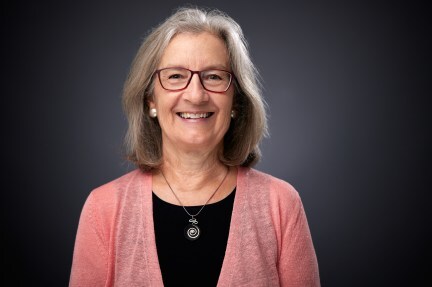
New Jersey born Lucy Burdette aka Roberta Isleib is the author of 21 mysteries, including A DISH TO DIE FOR, the latest in the Key West series featuring food critic Hayley Snow (Crooked Lane Books.) The tenth book in her Key West food critic mystery series, THE KEY LIME CRIME, won the Florida Book Award’s bronze medal for popular fiction. Her first thriller, UNSAFE HAVEN, was published by Severn House in December. Her books and stories have been short-listed for Agatha, Anthony, and Macavity awards. She’s a past president of Sisters in Crime, and currently serving as president of the Friends of the Key West Library. Find her here:
https://facebook.com/LucyBurdette
The Cat Cafe Mysteries go Dutch
By Liz, holding on to summer as long as possible
I hit a fun new milestone in the writing world this year. My – well, Cate’s – Cat Cafe books have been translated into Dutch and are available in the Netherlands.
I got the news late last year that the rights for the first three books had sold. A few months later, I got tagged in a couple of posts – in Dutch – which suggested the books were already out in eBook format.

And then just last month, I got word that the next three books were also going to be translated.
This was such a fun experience, seeing all the people sharing, participating in giveaways, and – at least as far as the translation feature on Instagram tells me – liking the books.

It was such a great reminder for me that even though sometimes I feel like I’m sitting in this little corner, doing my thing, that my words are getting out into the world – sometimes a lot further than I could have imagined. So this is just another reason for me to say thank you to ALL the readers around the world who love books in general and who make it possible for books like mine to get in the hands of people I could have never dreamed of.
Keep reading. We need you!
Readers, do you books in translation? Any favorites to recommend?
August 23, 2022
Wicked Wednesday: the Changing Light
Edith/Maddie here, with our fourth August Wicked Wednesday.

We are still in what we think of as full summer. School hasn’t started yet in Massachusetts. People are still going to the beach, having cookouts, wearing white and drinking gin and tonics, and relaxing in the warmth of the season. But, alas, dear readers, we’re closer to the fall equinox than the summer solstice. The light in New England makes sure we know it, too: sunrise today is at 6:59, and sunset at 7:31. The sun slants more, and the air changes.
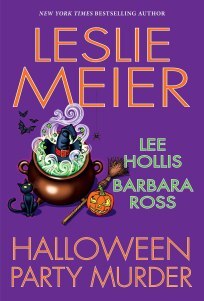
Halloween Party Murder, the collection Barb has her novella “Scared Off” in, released in paperback yesterday, and congratulations, by the way! And that also got me thinking about the fall even while we’re still enjoying the activities and fruits of summer.
Wickeds, would you rather write about the summer or the fall? Which books have you set in August and which in September, October, or November? Did it change the way you wrote? Which season do you prefer for yourself?
Liz: I love both! They’re both my favorite seasons. My Pawsitively Organic Mystery A Biscuit, A Casket is set in October around Halloween, and the Cat Cafe Mystery The Tell Tail Heart is a November book. Claws for Alarm is a summer book. And I’m currently working on the newest Cat Cafe Mystery, which will be another Halloween setting.
Barb: My Maine Clambake books are about a very seasonal place and business, so it makes a huge difference which time of year I’m writing about. The novels that take place during the clambake season are full of sun and fun and great food, though Julia finds it challenging to find time to solve a mystery. The stories in the off-season are better for sleuthing but without the tourists and snowbirds, there are fewer victims available. The novellas are tied to holidays, all of them in the off-season, and I particularly love the challenge of writing those stories.
Julie: The five books in the Garden Squad take place in one calendar year. May/June, August, October, December, May/June. One would think that writing books that center on gardening would be harder in the fall/winter, but I loved writing Wreathing Havoc and Digging Up the Remains. Lilly, after all, has a greenhouse. The spring season for gardening is the time of opportunity. Late summer, which is when Tilling the Truth takes place, is always hot and often dry. My other books mostly took place in the fall and winter, so I suspect that may be my favorite time of year to write about.
Sherry: Like Julie, both my series follow calendar years. Each of the four Chloe books is in a different season which follow the local seasons — summer is the busiest, fall the quietest, winter is snowbird season, and then it’s spring break season. The garage sale books take place over two years with more of them in the spring/summer/fall because of the nature of the business. I don’t have a preference as far as writing in a season, but I do love fall personally!
Edith/Maddie: I’ve set books in each season all around the year in each of my series. Like Barb, my Local Foods mysteries were seasonally tied to what’s growing on the farm and how much time Cam has to deal with murder, and the Cozy Capers Book Group Mysteries are connected to which tourist season it is on Cape Cod. It’s a bit hard for me to write in the summer, because I love being outside so much, but I do it anyway! And it’s as fun to write a blizzard scene when you’re sweltering in July heat as it is taking your characters to the beach when it’s snowing outside your office.
Jessie: I agree with Edith that it can be such fun to “visit” another season while living in another one. My last Beryl and Edwina book was set in August and the one I am writing at present is set in late September/early October. I tend to enjoy writing books set in any season but often the story springs from research that ends up guiding when the novel will take place. Like Sherry, I love autumn in real life!
Readers: Do you have favorite seasons to read about, or to read in?
Guest Joyce Woollcott’s Journey to Publication #giveaway
Edith/Maddie writing from north of Boston with another stellar guest for your reading pleasure.
Joyce Woollcott and I are both members of the Sisters in Crime Guppies chapter, and we met in person at a gathering at Malice Domestic. I loved talking with her. When I learned her debut novel would be out this summer, of course I invited her over to meet all our readers! But first, let’s check out A Nice Place to Die, which will release soon (the date has been sliding a bit, but it WILL be out soon). Make sure to leave a comment to enter the giveaway!

The body of a young woman is found by a river outside Belfast, and Detective Sergeant Ryan McBride makes a heart-wrenching discovery at the scene, a discovery he chooses to hide even though it could cost him the investigation – and his career. The victim was a loner but well-liked. Why would someone want to harm her? And is her murder connected to a rapist who’s stalking the local pubs? As Ryan untangles a web of deception and lies, his suspects die one by one, leading him to a dangerous family secret and a murderer who will stop at nothing to keep it.
And still he harbors his secret …
Take it away, Joyce!
I’ve always been a reader, always. Even as a child when I look back, I remember particularly enjoying adventure and mystery. I grew up just outside Belfast and in those days, I couldn’t lose myself in social media so I lost myself in books. The Famous Five, The Secret Seven – I think you can see the beginning of a trend. I read the classics too of course, for school and pleasure, but I always enjoyed a good murder, just like my mum.
After graduating I came to Canada, got a job, married, raised a daughter and read. Michael Connelly, Lou Berney, Denise Mina, Ann Cleeves, P.D. James, and the like. I wrote while I still worked, as I suppose a lot of aspiring writers do, but only in a half-hearted way, feeling out of depth. When I took early retirement and could finally take the time, I enrolled in some night classes and learned how to format, what typeface and size to use. It was from those classes that I started to read my favourite books again and actually learn from them.
I started to paint too, somehow the idea of just writing seemed so foreign to me. Could a person write? I used to paint when I was younger and I thought I could fill my days doing both, and if the writing didn’t work out, well I could always fill my days painting …
 Mist on the River
Mist on the River Yellow Daisies
Yellow Daisies Loch Erne
Loch ErneI signed on for a summer workshop at The Humber School for Writers in Toronto and the next year was accepted into a year-long, on-line, post-grad class there with Canadian novelist Robert Rotenburg. This was the beginning of a journey to complete my first ever manuscript. Abducted.
I passed the year with a Letter of Distinction. Encouraged, I entered Abducted in the Arthur Ellis Awards Unpublished contest. I was long-listed in December 2018.
Spurred on by this, in February 2019 I entered the Daphne du Maurier Awards with my second novel, A Nice Place to Die. In May, 2019 I got a call from New York, telling me I was a finalist. On 24th July I watched the Awards via video link. I won the Daphne! This is for their largest group, Unpublished Mainstream Mystery/Suspense.

January 2020, I received notice that A Nice Place to Die made the long-list of the Arthur Ellis Awards, Unpublished, and finally in 2021, I made the short-list as a finalist in the Crime Writers of Canada Awards of Excellence.
As you can tell from this, my road to publication has been long. I was full of doubt and sought a backup plan, but in the end, writing took over and I was offered and signed off on a two-book contract in 2021. That contract is for A Nice Place to Die and the second book in the series Blood Relations. It’s been a lot of work but it’s been worth it and I do believe this is a process most writers have to go through. Yes of course there are debut novelists who hit the ground running, straight out of school or university or college, but I think this is the exception, not the rule. We need to read, we need to write and we need to learn. This takes time and determination. Take courses, ask for help, seek out critique partners and readers. And listen to the criticism, because it will come. And when all that is done, submit your work. And good luck!
Readers: I read mysteries and adventure when I was young, The Famous Five and The Secret Seven. What kind of books did you enjoy as a young child and have your tastes changed much? Did you only read science fiction as a kid and now you enjoy cosy mysteries? Did you love westerns as a child and now you love romances? I’ll send one commenter a copy of the new book after it comes out (date of which still hasn’t been nailed down, alas).
 Maternity & newborn photography in Toronto – Photography by Dawn
Maternity & newborn photography in Toronto – Photography by DawnJ. Woollcott is a Canadian writer born in Northern Ireland. She is a graduate of the Humber School for Writers and BCAD, University of Ulster. Her first mystery, Abducted, was long-listed in the Canadian Arthur Ellis Awards in 2019. Her second book, A Nice Place to Die, won the RWA Unpublished Mystery/Suspense Daphne du Maurier Award in 2019 in New York. A Nice Place to Die was also long-listed in the Arthur Ellis Awards for 2020 and short-listed in the Crime Writers of Canada Awards of Excellence in 2021. She is working on part two of the Ryan McBride Belfast Murder Series, Blood Relations, due out in August 2023.
She is a member of Crime Writers of Canada, Sisters in Crime, International Thriller Writers, and the Suncoast Writers Guild.
Twitter @JoyceWoollcott
August 21, 2022
Refilling the Well – or Falling Down it?
Edith/Maddie here, with some musings about taking a week off.
A few months ago, my son and his wife invited Hugh and me to join them for part of the week in August at a vacation house they’d rented in New Hampshire. We said we’d love to. We decided to extend the trip by heading over to the Maine coast for a few more days after that. Me, the constant worker, agreed to take a week off. (Go ahead and gasp if you’d like.)
We had a great time, eating and visiting and walking our way through the week. Here are a few pictorial highlights.
 Allan, Hugh, and I at Pea Porridge Pond
Allan, Hugh, and I at Pea Porridge Pond Alison and Allan at the rented chalet in the woods
Alison and Allan at the rented chalet in the woods Alison and Allan at the top of Foss Mountain
Alison and Allan at the top of Foss Mountain Playing Bird Spotting Opoly one evening in the screen porch where we spent most of our time at the house
Playing Bird Spotting Opoly one evening in the screen porch where we spent most of our time at the houseWe headed over to our Airbnb in Belfast Maine and started out with dinner on a family farm nearby where I know the owners.
 At Toddy Pond Farm in Monroe, Maine
At Toddy Pond Farm in Monroe, MaineHugh’s sister and brother-in-law drove over from their own NH home and we were joined for an afternoon by their cousin Ruth Lockhart, who lives in Bangor.
 Mary, Ruth, and Hugh Lockhart
Mary, Ruth, and Hugh Lockhart The Impossible Dream, a fully accessible catamaran sailboat, at dock in Belfast
The Impossible Dream, a fully accessible catamaran sailboat, at dock in Belfast Splitting seafood bisque and a lobster roll at Marshall Wharf Brewery
Splitting seafood bisque and a lobster roll at Marshall Wharf Brewery Walking at Moose Point State Park
Walking at Moose Point State ParkIt was a great getaway, and I didn’t work at all except a little blog maintenance and Facebooking every morning. I definitely refilled the creativity well, and when we got back I set to work the next morning tackling hard revisions on a book I’d pretty much decided to give up on before we left.
But I might have mentioned in other posts here that I’ve always had an overactive imagination.
The woods in New Hampshire can be dark and remote. They made me think of how easy it might be to bury a body, or evidence.

Exploring Cathedral Ledge brought to mind someone being pushed off, or sabotage to one of the rock climbers’ ropes.
 What? Who would throw things at the rock climbers? Oh, a murderer, maybe. Also, other areas on top weren’t fenced at all…
What? Who would throw things at the rock climbers? Oh, a murderer, maybe. Also, other areas on top weren’t fenced at all…An early morning solo swimmer at the pond could have come to his demise so easily.

Even this sunny mountaintop had rocks and potential dangers.
 Foss Mountain, NH
Foss Mountain, NHIn Belfast, we walked across the pedestrian bridge over the Passagassawakeag River at low tide.
 Hugh, Mary, and Gene on the bridge
Hugh, Mary, and Gene on the bridgeWe spied an abandoned scooter down below. Stories about its rider, thoughts of footsteps erased by the incoming tide, and other murderous ideas came to mind.

I gazed at the working shipyard with its giant hoists and huge hooks on chains and imagined more mayhem.

What if a weapon had been strapped to the bottom of a yacht? Or those sling straps got loose somehow?
If this all seems too gruesome for vacation, apologies, but I can’t help it. It’s the way my brain works, especially now.
This week of being away was all about falling down into the well of ideas and refilling it with the energy to return to my desk and make magic happen!
Readers: how do you refill the well? Where do you find ideas for new ventures?
August 19, 2022
Guest Mindy Quigley and Triple Giveaway!
Edith/Maddie here, just back from vacation and ready to get back to work.
But first, let me welcome Mindy Quigley to the Wickeds! Mindy and I both have short stories in the Beat of Black Wings anthology, in which every tale riffs in some way off a Joni Mitchell song (Sherry has one in it, too). I met Mindy during an online short story panel, and when I heard she had a first-in-series cozy mystery coming out, I invited her to the blog. Three lucky commenters will receive a copy of Six Feet Deep Dish! I can’t wait to start reading the book, which releases next week.

Isn’t that a great cover? Here’s the blurb:
Fresh mozzarella, tangy tomato sauce, and murder: the perfect recipe for a delicious first entry in Mindy Quigley’s Six Feet Deep Dish
, a delectable new series…
Delilah O’Leary can’t wait to open her new gourmet deep-dish pizzeria in Geneva Bay, Wisconsin—a charming resort town with a long history as a mobsters’ hideaway, millionaires’ playground, and vacation mecca. Engaged to a hunk with a hefty trust fund, Delilah is poised to begin a life that’s just about as delicious as one of her cheesy creations. Just before opening night, though, Delilah’s plans for pizza perfection hit the skids when her fiancé dumps her and leaves her with a very large memento from their relationship—Butterball, their spoiled, plus-sized tabby cat.
Delilah’s trouble deepens when she discovers a dead body and finds her elderly aunt holding the murder weapon. Handsome local police detective Calvin Capone, great grandson of the legendary gangster, opens an investigation, threatening to sink Delilah’s pie-in-the-sky ambitions before they can even get off the ground. To save her aunt and get her pizza place generating some dough, Delilah must deliver the real killer.
Take it away, Mindy!
You ask people about their cupcake preferences, and they probably have thoughts. Chocolate or vanilla, fancy boutique flavors or made straight from the Duncan Hines box, unadorned or topped with edible sugar tchotchkes. These are legitimate opinions, and a variety of taste preferences is generally accepted.
Ask people about their favorite pizza, though, and emotions start running hot. Foldable New York by-the-slice? The pleasingly solid rectangle of a Detroit-style pie? Or a simple, quick-baking Neapolitan? Choose your weapon, because this is a shooting war.

I didn’t quite realize what choppy waters I was wading into when I decided to set the Deep Dish Mysteries series in a Chicago-style deep-dish pizza restaurant. Maybe I fell victim to what food journalist and pizza connoisseur Steve Dolinsky labeled PIGUE (Pizza I Grew Up Eating) Syndrome. PIGUE is characterized by an inability to judge pizza without bias, to distinguish good pizza from familiar pizza.
I was raised in Chicago, and to me there are two types of pizza:
Crispy-crust tavern-style squares of the kind served by South Side staple Aurelio’sDeep-dish, with its thick, buttery crust, mile-high layer of oozing mozzarella and reversal of the usual order of toppings (i.e. cheese, then toppings, then sauce)I’m a fairly adventurous eater overall, so in most culinary domains, I won’t knee-jerk dismiss the unfamiliar. But with pizza, I have feelings, and I know I’m not alone in this. There’s something so foundational, so rooted in rituals and memories of childhood, that insulting someone’s pizza preferences strays worryingly close to insulting their mama. This is a theme that undergirds the relationship of my main character, Chicago-native Delilah O’Leary, to pizza. Although she spent her early career in fine-dining, pizza is her passion. For her, deep-dish is about comfort, about deliciousness. A celebration of cheese and joy.

Even for readers who didn’t grow up eating deep-dish, I think the book will resonate. I pitched the Deep Dish Mysteries a few months before a global pandemic bullied its way onto the scene. Since then, we’ve collectively been on a long, strange trip. The elements of this series—snuggles with cats, cocktails with friends, and most of all pizza—may not cure everything that ails us, but they’re a reminder of what life can be.
The return to foundational foods seems to be in cultural zeitgeist at the moment. From the success of fictional shows like Hulu’s The Bear, which centers on a thinly-veiled version of Chicago’s iconic Mr. Beef sandwich shop, to real-life restaurants like Turkey and the Wolf, an undertaking by celebrity chef Mason Hereford that plays with iconic childhood dishes like bologna sandwiches, there’s an appetite to do away with baroque culinary creations and obscure ingredients in favor of nostalgic yumminess. Six Feet Deep Dish is in the same vein. After almost three years of self-denial, isolation, and a quasi-obsessive focus on our health, this book, I hope, will provide readers with a big, cheesy slice of comfort.
Readers: Have you tried deep-dish pizza? Did you like it? Do you think the pizza you grew up eating is ingrained in your palate for life, or have you moved on to greener pizza pastures? What memories does eating pizza evoke for you? Three commenters will win a copy of Six Feet Deep Dish! U.S. residents only.
CLICK TO ORDER ON AMAZON
CLICK TO ORDER ON BOOKSHOP.ORG
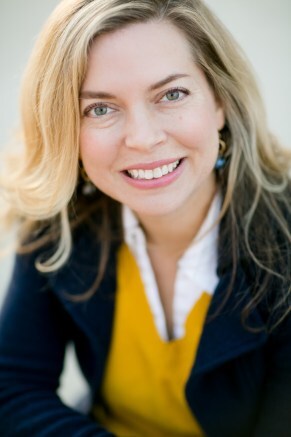
Mindy Quigley is the author of two cozy mystery series: the Deep Dish Mysteries and the Mount Moriah Mysteries.
Her short stories have won awards, including the 2018 Artemis Journal/Lightbringer Prize. Her non-writing career has been stranger than fiction, taking her from the US to the UK, where she worked as the personal assistant to the scientist who cloned Dolly the sheep, and as project manager for a research clinic founded by the author J.K. Rowling.
She lives in Virginia, with her Civil War history professor husband, their children, and their idiosyncratic miniature Schnauzer. Find out more at: mindyquigley.com
August 17, 2022
Genre Hopping with Laura Walker
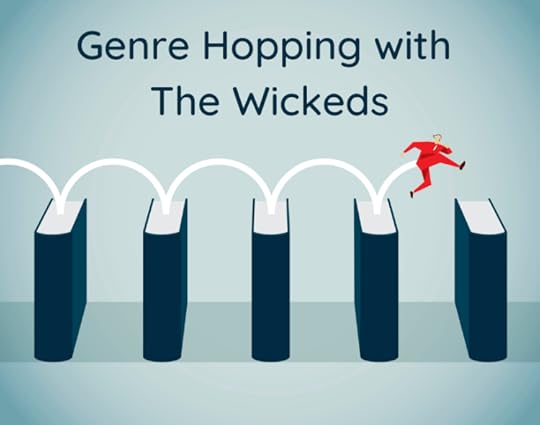
Edith/Maddie here, just back from a quick vacation and dutifully tending to my blog wrangler responsibilities for the month.
Like the others, this one is not a bit onerous! Laura Walker is a California author who writes delightful cozy mysteries, but she has also been through a lot in her life. Today she’s genre hopping for us with her new memoir, Good Girl: A Memoir of Overcoming Rape, Breast Cancer, and Fundamentalism. I’m thrilled to present her and the book to our readers, and she’s giving away a copy to one lucky US commenter.

But first, the book blurb: Laura Jensen Walker was always a good girl. Growing up in the Midwest in the 1960s, she was a polite, straight-A student who respected her elders, went to church on Sunday, and never gave her parents any trouble. Bookworm Laura was the poster child for good girls everywhere. Until one fateful night in a college fraternity house. This is the journey of a “good-girl-gone-bad-gone-good-again” and her search for belonging and acceptance, with funny and not-so-funny detours through boot camp, Britain, book-burning, breast cancer, and born-again evangelicals. Ultimately, it’s a story of resilience. Victory. And healing.
 The good little girl in her Easter bonnet (six or seven years old.)
The good little girl in her Easter bonnet (six or seven years old.)Mixing it Up – Writing in a Different Genre
I’ve always written in different genres. More than twenty-five years ago my publishing career began with DATED JEKYLL, MARRIED HYDE, my first funny foray into non-fiction. After that, I wrote nine more non-fiction humor books before moving into my passion. Fiction. My first novel DREAMING IN BLACK & WHITE (chick lit) came out in 2005, followed by six more fun and frothy chick lit books. But after writing 17 books in 12 years, I took a long, much-needed writing sabbatical.
I returned to writing in 2020 with my first cozy mystery, the Agatha-nominated MURDER MOST SWEET. Two more cozies followed in quick succession. Which brings us to now and my latest book, my return to non-fiction. Good Girl: A Memoir of Overcoming Rape, Breast Cancer & Fundamentalism is the hardest book I’ve ever written.
 During Air Force basic training (19 years old.)
During Air Force basic training (19 years old.)GOOD GIRL started as a spiritual memoir several years ago after I’d left fundamentalist Christianity and found my home in the inclusive Episcopal church. It became so much more.
I hadn’t intended to write about the sexual assault that happened in my late teens—to reveal that private trauma to the world. Good girls didn’t talk about such things. They kept them private. Hidden. Buried beneath layers of shame. Yet a few years ago after hearing woman after woman come forward and bravely share their #MeToo stories, I realized that what happened to me had happened to a LOT of women. Girls. Not just me. I took a deep breath and began the painful process of honestly examining my rape at nineteen and how I’d reacted over the years to that assault on my body. My psyche. My whole being.
 My husband and me during my chemo days, 30 years ago.
My husband and me during my chemo days, 30 years ago.And then I picked up my pen and began writing. Bringing my secret to the light. Sharing it with the world. And healing in the process. No more shame. No more fear. No worries about what people would think. I wrote the book I was meant to write all along. The book of my soul. The best book I’ve ever written.
Writers: Do you like to mix it up by writing in different genres? If so, which ones? Readers: Do you like to mix it up by reading in different genres? Which are your favorites?
Please answer for a chance to win a copy of GOOD GIRL (U.S. only—sorry.)
[Edith: Laura’s on the west coast, so she’ll be by to respond to your comments a little later.]

Former journalist Laura Jensen Walker is the award-winning author of more than 20 books, both fiction and non-fiction, including Good Girl, Thanks for the Mammogram! and the Agatha-nominated Murder Most Sweet, an Amazon bestseller. She is a member of Sisters in Crime and Mystery Writers of America.
Laura loves hearing from readers. You can connect with her through www.laurajensenwalker.com, on Twitter @LauraJensenWal1 or Facebook.
Wicked Wednesday: Ripening
Edith/Maddie here, with a third August Wicked Wednesday.

August is a month of much ripening in New England gardens and on farms. The tomatoes are finally red, the cucumbers full and crisp, the sweet corn ready to sink your teeth into. You can harvest plump blueberries. You can pick juicy peaches and, if you grow vegetables, enjoy fresh salsa or ratatouille from peppers and eggplants and herbs and the ubiquitous zucchini picked entirely in your own garden (or at your local farm stand, if you don’t garden).
But we’re authors, so let’s talk about ripening a book. Many readers are curious about our writing process, which is different for each of us.
Wickeds, what’s your book ripening process? Do you take your time writing it, letting it develop and mature gradually? Do you bat out the first draft and then leave it to gel for a while? Do you edit as you go or leave tweaking to your revision passes? Dish on how your book becomes ripe enough to send in.
Barb: Lately I’ve decided that my writing process is finding the perfect “Balance of Panic.” My panic that the book is terrible has to be perfectly offset by my panic that I won’t complete it by the deadline, without tipping over into panic paralysis. Once I find the perfect balance I can terrify my way through the process to the end.
Liz: Barb, that’s amazing…and so relatable. My process has always been weird. I write half the book, then go back and start editing to see if I can pull some kind of story out of the mess of words I’ve written. Then I write the next third, and do the same thing. And then usually like a day before the deadline I write the ending…well, that’s a bit of an exaggeration, but not much.
Julie: Barb and Liz, I love reading about your processes. But they give me a stomach ache. Deadlines are very helpful, but I’ve discovered that I need to write a draft, let it sit for at least two weeks, edit then polish. I’ve found that’s my best process. If I don’t give it time to ripen between drafts, the story doesn’t work. I do plot, so that first draft is a solid effort with holes that need to be fixed.
Edith/Maddie: I think my process is more like yours, Julie, even though you plot and I don’t. I don’t heavily edit as I go, but I do start each day giving the previous day’s writing a light edit. Right now I’m letting a first draft “season” for the month while I work on short stories and polish a different manuscript. I’m rarely in panic mode like Barb (and possibly Liz), thank goodness!
Jessie: I love hearing all the ways it is possible to produce a manuscript that is ready to submit! Like Julie, I plot. The plot is a series of scenes, in order, each summarized on a sticky note. I write a slightly more narrative synopsis from there. Each day as I begin to work I read the synopsis for the scenes I plan to write and then I begin pacing my office and dictating using Dragon. If I have time, I leave the first draft for a bit to simmer. If not, I plunge ahead after a day or two and generally am completely finished after two more drafts.
Readers: What’s your ripening process for projects? Or just mention your favorite ripe summer food!
August 15, 2022
Ask the Expert: Kathleen Bond
Edith here, on vacation in Belfast, Maine! Still, the blog must go on.
I met audiobook narrator Kathleen Bond earlier this year, and I thought it was time to wake up our occasional feature called Ask the Expert. She doesn’t narrate any of my audiobooks – yet – but if anyone needs a narrator, I recommend her. You can listen to a clip from one of her books here.
Take it away, Kathleen!
How Did You Get Started in the Business?
Well, through a route that was both circuitous and direct. Quite a few decades ago now, I went to Boston University and studied acting. I received a B.F.A. in it and worked—or tried to– for a number of years. Through a series of events that are too long to go into here, I went back to school and got a master’s degree in historical archaeology and then, some years after that, I went to Harvard Divinity School and studied healthcare chaplaincy.
I worked for about 20 years as a hospital and hospice chaplain. I loved the work I did, helping people as they approached the end of their life and offering care to their loved ones. However, acting and theatre always remained inside of me. I went back to doing theatre part time and then, when the Covid pandemic hit, I thought ‘why not try audiobook narration?’ I yearned for creativity, and narration was something I could do in my home. That was two plus years ago. It has taken a lot of study and work, but I am now part of a wonderful community of narrators.
What Are Three Things We Should Know About Your Area of Expertise?
First and foremost, narrators love books and stories. That is really a prerequisite for an audiobook narrator. Without that, why bother?
 Edith’s Country Store audiobooks – not narrated by Kathleen, alas, but popular with readers.
Edith’s Country Store audiobooks – not narrated by Kathleen, alas, but popular with readers.Second, audiobook narrators are a diverse group. Many, but not all, have acting training and that is a significant help to get inside and inhabit the characters in a book. However, other narrators come at it from all kinds of backgrounds.
Third, the number of audiobooks has grown tremendously over the last ten years. In fact, the Audio Publishers report the tenth straight year of double-digit growth. According to the Audio Publishers Association’s Sales Survey, nearly 74,000 audiobooks were published in 2021, a 6% increase over 2020. “Science Fiction and Fantasy narrowly edged out Mysteries/Thrillers/Suspense as the most popular genre by percentage of sales, with Romance and Fiction following close behind, and increases in Children’s and Young Adult revenue.”
I’m adding a fourth point here because I feel it is so important. Some companies are claiming that they can successfully use artificial intelligence (AI) to narrate books. Do not believe them! There is no way, an AI voice can capture the nuance, the breathing, the life of the characters that live in a book. Narrators are very worried about this—and I hope authors are, too.
Is there a general characteristic that experts in this field all share?
We are an inquisitive bunch. Any narrator worth their salt, wants to know all they can about the world of the book. We do all sorts of research to do it justice: researching pronunciations, studying accents, understanding the time period and/or field or culture. We also don’t mind—maybe even like—often working by ourselves. Plus, we tolerate sitting in a small space or booth for to do the recording!
What do people usually get wrong when writing about your field?
Many people think audiobook narration is easy. They think it is as simple as sitting in front of a computer and speaking into the computer mic, and voila! Nope. It requires a lot of training and special equipment—microphone, software, hardware. Recording needs to be done in as whisper quiet a space as possible, with no outside noise (darn those mowers, construction machinery, helicopters) and the space needs to be acoustically treated, so we don’t sound like we are recording in the Grand Canyon, for example.
What Are You Working on Now?
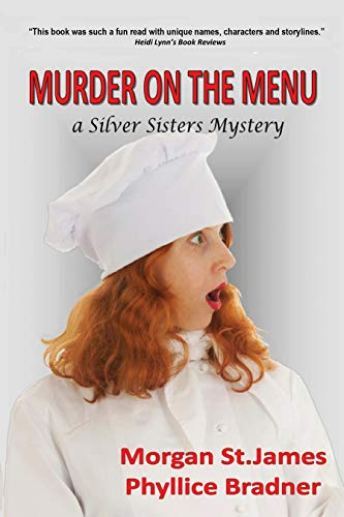
Right now, I am narrating a cozy mystery called Murder on the Menu: A Silver Sisters Mystery by Morgan St. James and Phyllice Bradner, who are, of course, sisters. It’s one book in a series. There are lots of wonderful, quirky characters, including a famous French-Canadian chef, an up-and-coming young chef, a hippie who travels in a van and two twin sisters—very different in temperament– who are amateur sleuths. It’s so much fun!
Readers: Ask Kathleen your questions!
Kathleen Bond
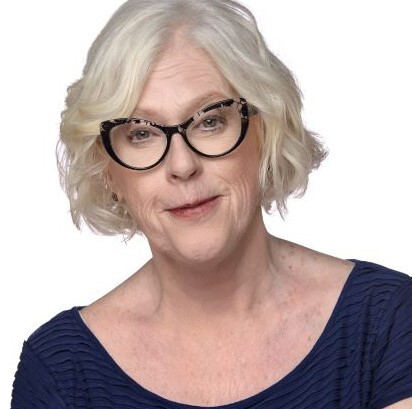
I hail from New Jersey–southern New Jersey, that is: corn, tomato, and scrapple country. So, I’m a hearty sort, softened by having had a proper British-born mother (yes, I like my tea). I’ve called Boston home for a long time–raised two sons here–after professional theatre stops in Philadelphia and Seattle. I have a B.F.A in acting, loads of professional theatre experience, and master’s degrees in both archaeology and healthcare chaplaincy. I promise you that I am not working my way down the alphabet of careers! I am drawn to these pursuits because–at their heart–they unearth peoples’ lives and tell their stories. I love to narrate audiobooks because it is such an intimate and powerful form of storytelling. Finally, when I am not behind the mic, you will find me in my garden, turning over the soil, planting, and singing. Find me any time at my web site.

